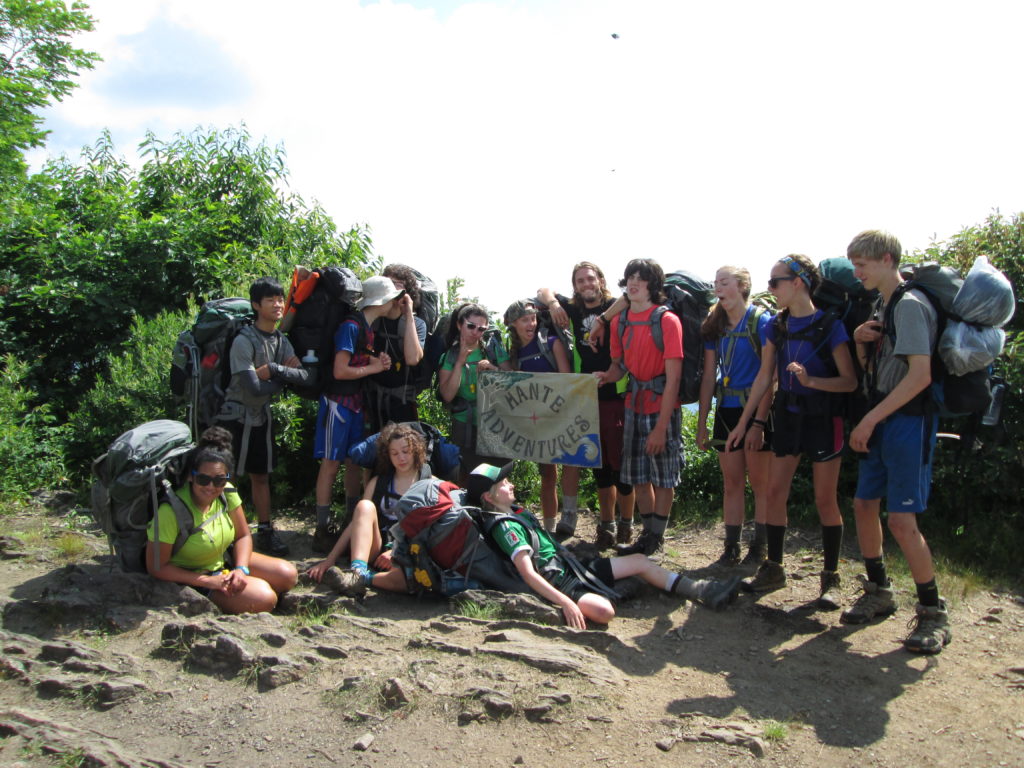I felt sick. “Not another step,” I thought to myself. “Please, no.”
The clouds around us turned our descent into an endless slog across the scree-covered embankments of the Andes. The bottom was either feet or miles away, invisible to our group of American high schoolers. Our seemingly aimless path lay shrouded in the still mountain shadow.
In the world of outdoor adventure, this memory is a textbook example of what we call “Type 2 Fun.” The effects of altitude sickness were taking their toll on me as Hanté Ecuador stepped down from the 15,715’ summit of El Corazón in the cloudy summer of 2007. It was not fun in the moment, and we plodded not-so-blissfully unaware of the hail that awaited us below. We were wet, we were cold, we were pelted. My head pounded for hours.
I would not change a single moment of it.
The lighter side of Type 2 Fun evolves after the adventure. Come sunlight and ebbing headaches, we felt as though we still stood atop the peak, borrowing from its resolve against the gale. The accomplishment dawned on us a bit faster than most Type 2 Fun, I would say. We surfaced from our tent bunkers with looks of wild, long-dormant vitality. Spirits soared, and what had already been a great Hanté reached even higher. Fittingly, El Corazón had opened our hearts.
That mountain became our dark side of the moon—mysterious yet within reach. Having chosen to delve into that mystery and see what light was on the other side now obscures my memory of the throbbing headache. What I remember most clearly is the forging of invincible bonds in that moment, both amongst each other and with the mountains. The Fun now comes from telling this story.
The term “Hanté” is derived and borrowed from the language of the Ho-Chunk, a people who historically inhabited what is now the Upper Midwest of the U.S. Semantically speaking, one cannot embody the Hanté meaning until the journey is complete as its English translation is in the past tense: “I went away and learned.”
The personal story I share drives home the possibility of such a statement. I went away and learned the nature of traveling in remote wilderness. I went away and learned my own physical limits. I went away and learned how to elevate those limits through mental fortitude and the help of a loving community. I went away and learned the power of witnessing others go away and learn, creating a community that is bound by our humility in what it means to be human.
Wherever Hanté goes, these possibilities remain at the heart of all the planning and all the anticipation. For those who are considering whether or not to go away and learn, I encourage you to reflect on what those possibilities could be for you, and what they could mean. Who do you want to be? What do you see as your limits? What are your barriers? How can you break them down?
I’d be remiss if I didn’t mention all the Type 1 Fun to be had on Hanté Adventures. This is the Fun that is joyful in the moment, and joyful to retell later on. Hiking conversations, cooking, games, music, swimming, exploring for the sake of exploring—to name a few. Friendships that I maintain and carry to this day. All of these are virtually guaranteed on each adventure.
So, with that, I invite you to at least daydream of being out there with a small community of friends, whether in the woods, on a mountain, or in a canoe chasing swift waters. Hanté Adventures will be exploring Maine, the Pacific Northwest, and the local Pisgah Forest offerings during Rocks & Rivers this summer. If you would like to make that daydream a reality and discover your own mysteries, we would love to have you go away and learn with us.
If you have any questions about the current Hanté offerings, feel free to reach out to me at andrew@enf.org. Also, in a world rife with division and inopportunity, it’s my duty to seek ways to ensure access to these possibilities across spectrums. Please reach out to discuss ways in which we can work to lower the bars of accessibility.
By Andrew Nelson, Assistant Camp Director and Hante Coordinator
